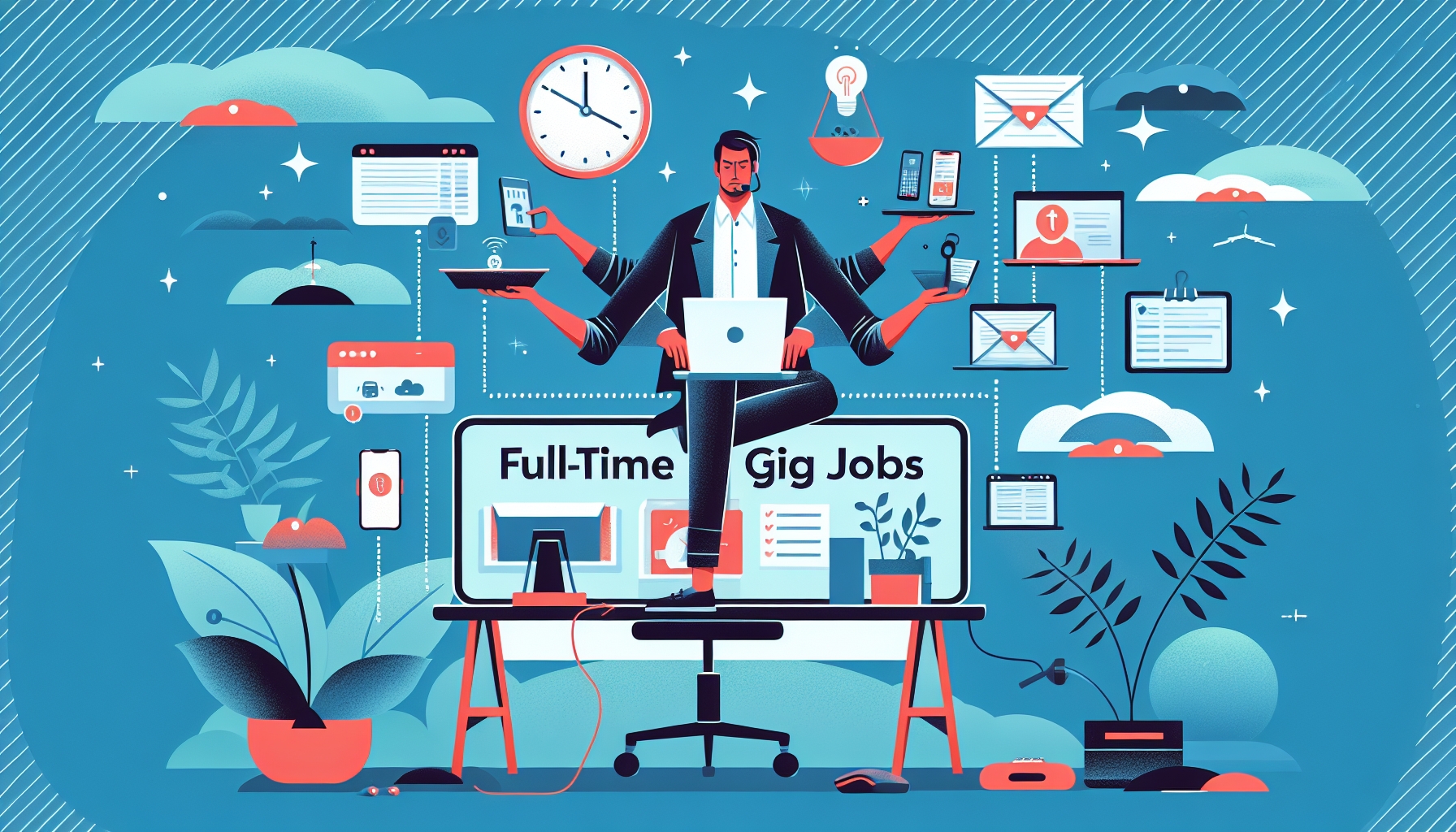Full-Time Gig Jobs: The New Frontier of Work

As the world of work continues to evolve, full-time gig jobs are becoming increasingly popular. These jobs, often characterized by flexibility and independence, offer a unique way to earn a living. But like any career path, they come with their own set of pros and cons. In this blog post, we’ll delve into the world of full-time gig jobs, exploring the benefits and challenges that come with them. Whether you’re considering making the leap into the gig economy or simply curious about this growing trend, this guide will provide valuable insights to help you make an informed decision.
Understanding the Gig Economy
The gig economy refers to a labor market characterized by the prevalence of short-term contracts or freelance work, as opposed to permanent jobs. Workers in the gig economy earn their income by matching with individual clients and completing work, or ‘gigs’ for those clients. The nature of these gigs can vary greatly, from short tasks like a five-minute survey to month or year-long projects.
According to The Bureau of Labor Statistics (BLS), 1.6 million workers are currently earning their income from the gig economy. This number is likely to be much higher when considering those who participate in the gig economy through ‘side hustles’ or part-time freelance work.
The Pros of Full-Time Gig Jobs
One of the main attractions of full-time gig jobs is the flexibility they offer. Gig workers have the freedom to choose their working hours and location, providing a level of autonomy that is often not possible in traditional jobs. This flexibility can be particularly beneficial for those trying to balance work with family commitments or other responsibilities.
Another advantage of gig jobs is the variety they offer. Instead of performing the same tasks day in and day out, gig workers often have the opportunity to work on a range of different projects, keeping their work interesting and challenging. Furthermore, many gig workers find that they are able to earn more money as they are not limited by a fixed salary and can charge hourly rates for their time.
The Cons of Full-Time Gig Jobs
Despite the many benefits, full-time gig jobs also come with their own set of challenges. One of the main downsides is the lack of benefits. As gig workers are not considered full-time employees, they are often not entitled to the same benefits as their permanently employed counterparts. This means that gig workers often need to budget for expenses like private insurance and retirement savings.
Another challenge is the uncertainty that comes with gig work. Gig workers need to constantly be on the lookout for their next gig, which can lead to stress and instability. Furthermore, gig workers often work remotely, which can lead to feelings of isolation and disconnection from the rest of the workforce.
The Impact of Full-Time Gig Jobs on Businesses
Full-time gig jobs are not only changing the way individuals work, but they are also having a significant impact on businesses. By hiring gig workers, businesses can save on costs associated with benefits and onboarding. Furthermore, gig workers can provide businesses with a diverse pool of flexible workers, allowing them to quickly scale their operations and meet the demands of their market.
However, businesses also need to be aware of the potential challenges associated with hiring gig workers. These can include ensuring compliance with regulations for contractor status and managing the potential unreliability of some gig workers.
The Future of Gig Jobs
Full-time gig jobs represent a significant shift in the world of work. While they offer many benefits, they also come with their own set of challenges. Whether you’re a worker considering a move into the gig economy or a business looking to hire gig workers, it’s important to weigh up these pros and cons to make an informed decision. As the gig economy continues to grow, it’s clear that full-time gig jobs will continue to play a vital role in shaping the future of work.

